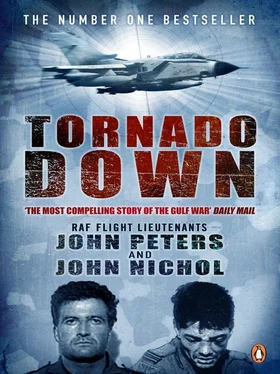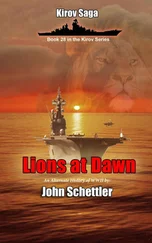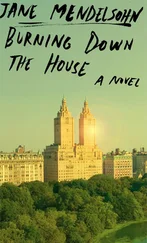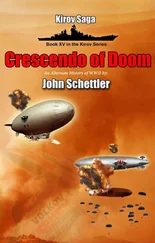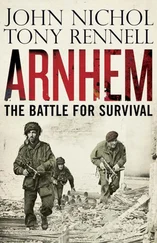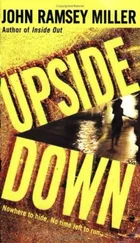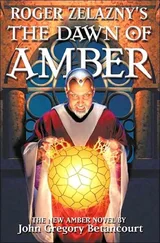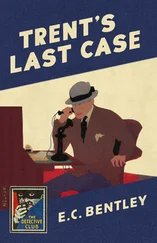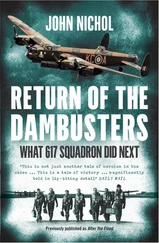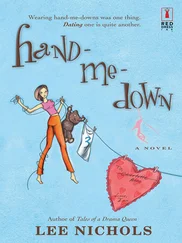Gradually, the combination tumblers of a ‘normal’ life began clicking gently back into place. It was fun becoming a daddy again. There remained, however, one big problem: the media. Anyone who has become the focus of intense media interest faces the same peculiar problem: choose the wrong stepping stone on your way to dry land, and you, your story, your credibility and perhaps even your career will be washed away in the flood of hyperbole.
But there was a good side to it. Suddenly, after the war, we were in a position to make a lot of cash for charity – the Gulf Memorial Fund. Together John and I did three airshows and were lucky enough to raise over £ 30,000. People were very generous. We were walking on air. For the first time, we really understood what it is to be free. Not only that, but everyone was treating us like heroes.
Sometimes, though, things happen that bring you back to earth, and cast your own experiences into shadow. At one of these airshows, RAF Fairford in Gloucestershire, the mother of a little boy with advanced leukaemia asked if he could meet us and look over the Tornado.
He was about six or seven. A baseball cap covered his head where the harsh chemotherapy had made him bald. Chatting quietly to his mother, she told us he was extremely ill. The first thing we did was gather up all the various prints and memorabilia we could lay our hands on, and give them all to him. His face shone with happiness, but he was still extremely shy. We walked him around the aircraft, both of us taking turns carrying him when he did not want to walk. Then we tried to help him up into the cockpit. He climbed the first two rungs of the ladder without help, but then shyness got to him and he started to cry. None of us could coax him up the rest of the steps. We didn’t want to lift him against his will, so we had to give up the whole idea. His mum crouched down, trying to console him. I looked at him standing there as his mother comforted him, a sad little figure weeping in his baseball cap. He made me think of Guy.
There we were, still in good health, and enjoying life; anything we might have been through, or that our families might have been through, paled alongside what that boy’s mother, and the boy himself, had to live through. How did she cope with the knowledge that her child was very ill, and likely to die? How would she cope when he did die? We had been given the world’s attention, accolades. What would this woman be offered on the loss of her child?
Even now, all some people see is the superficial glitter of the media attention. The ‘glitter’ has been fun. But for all the nice things that have happened to us, we would rather have flown twenty-one successful combat missions than get our guts kicked out in prison. Ours was a nasty, dirty, grubby little war.
CORNWALL. John Nichol: The whole Squadron travelled over to the UK in a VC-10 specially laid on by the RAF for Steve Hicks’s funeral.
Steve’s death hit me hard. On an official Squadron ‘dining-in’ night, his wife Lyn stood up and made a speech. It was a short speech, but it took real courage, and it was devastating. Here was the wife of a friend we had all lost, speaking bravely on behalf of her dead husband. Around the room, while Lyn was speaking, and afterwards, when she had sat down again, people were struggling to hold back the tears. It was as if all the pent-up emotions of the Squadron were being let out, a clearing of the decks. I remember standing with Lyn in the bar after dinner. We hung onto each other, sobbing quietly. Just that.
The funeral was held in the church near his family home. There we were, at the funeral of a friend, in the company of his wife, and what did the press do? They harassed the congregation, dishonouring the living who were assembled to honour the dead. Harrying both of us for an interview, the ladies and gentlemen of the media tried their best to make a nonsense of the whole occasion. While we could all understand they might want to cover the funeral of a Gulf War hero, we could not believe they were touting for our story at such a sensitive moment. This was plain disrespect for the dead. One or two of the senior officers present did their best to get rid of the intruders, and the service continued.
It was intensely moving, this memorial service for a dead friend. We were in beautiful old Cornwall. The mist was hanging on the wooded slopes around the church. There was complete quiet. The words of the service rang out in the still air.
Four Tornados executed a fly-past at the end of the ceremony, a mark of respect for the dead man. They were in ‘finger four’ formation, the four grey shadows approaching slowly through the mist. As they came overhead, the lead aircraft pulled up sharply, plugged in reheat, and roared away from the remaining three. It climbed vertically, heading straight for the stars, the bright flames of its engines flaring orange against the grey sky. This jet, disappearing suddenly from the middle of the ‘missing man’ formation, signified a departed comrade, the missing man. There was the long thunder of the engines, and then a complete hush. It was gut-wrenching. There was a stunned silence. Then John Broadbent went up to the graveside, saluted, turned slowly, and deliberately walked away. Individually, every other officer walked to the graveside in his turn, paused, quietly saluted, and walked out of the graveyard.
Some of the ties that had held us all together in the war began to unravel. We discovered that the Squadron, which had fought so successfully in the Gulf, was soon to be disbanded: Laarbruch was going to be decimated. It was almost as if the fly-past at the funeral had marked the passing of the Squadron, too. Along with our own, 16 and 20 Tornado Attack Squadrons were due for the chop, and II (AC) Tornado Fighter Reconnaissance Squadron was being moved back to the UK. Impossibly quickly, in some cases within days of their return, the people we had gone to war with were being posted, leaving the Squadron for ever.
Even as the Gulf crisis was developing, the crumbling of the Soviet threat had led to drastic cuts in the British forces. XV would live on, just, as a reserve Squadron – the Tornado Weapon Conversion Unit (TWCU). Its boss, John Broadbent, who had been decorated with the Distinguished Service Order for outstanding leadership and bravery, was being replaced by Wing Commander Andy White. Fortunately, the distinguished Squadron number, XV, would survive.
It was depressing. The ending of the Cold War had achieved what the Iraqis could never have hoped to do.
John Peters: The pews of St Mungo’s, Glasgow’s gaunt black stone cathedral, were packed with dignitaries: the families of all those who had fallen in battle in the Gulf; Her Majesty The Queen and the Duke of Edinburgh; the Prime Minister and the British Cabinet; Neil Kinnock, then Leader of the Opposition Labour Party; Paddy Ashdown, himself an ex-serviceman, Leader of the Opposition Liberal Democrats; at least fifty Members of Parliament; a whole constellation of Generals (three-star and above only); forty-one ambassadors from around the globe; choristers, ushers, musicians and military personnel. Looking around at the distinguished guests, the royalty and the military brass, my nerves began to increase. You could hardly lift your eyes for fear of being blinded by all the medals and gold braid. Although I already knew it would be televised, the scale of the occasion hadn’t dawned on me until then. I had a stinking cold and a sore throat; my voice had gone. It wouldn’t have mattered – but I was supposed to be reading one of the lessons.
I felt unsure about my right to be there at all. John and I had been shot down on our first mission, mucked about in the desert for a bit, and then been captured. We sat out the rest of the war while our mates did the fighting.
Читать дальше
